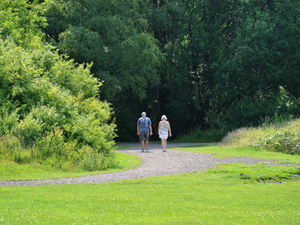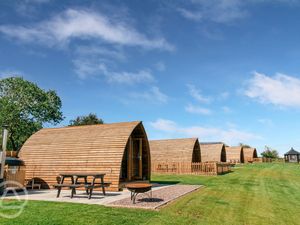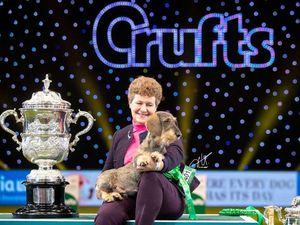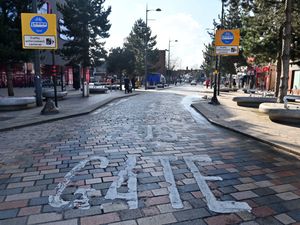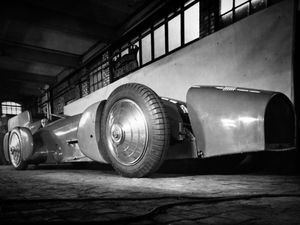Wolverhampton's lone Wulf couldn't turn the tide
Howl about this then? It was the Wulf, Wolverhampton's answer to beat off the Japanese motorbike invasion.
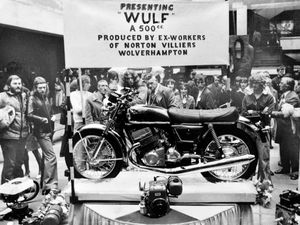
Sadly it turned out to be a lone Wulf which was unable to turn the tide.
The Wulf had been made and invented by former Norton Villiers Triumph workers from Wolverhampton who had been thrown out of work but were nevertheless defiant and were pinning their hopes on the 500cc machine.
Our picture is of it going on show at the Mander Centre in Wolverhampton in October 1975, although it had been launched at the NVT plant at a ceremony attended by, among others, Wolves star Derek Dougan, in which the gleaming machine emerged ridden by a model wearing hot pants – this was the 1970s, after all.
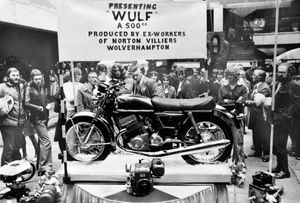
The Wulf had a revolutionary stepped piston engine, and was invented by Bernard Hooper, former chief engineer of advanced projects at NVT, and his colleague, John Favill.
As shoppers admired the only Wulf in existence Bernard said: "We believe this bike is the best produced so far to meet the world requirements for cutting exhaust emission, conserving energy, reducing noise, and the use of raw materials."
Mr Hooper, who lived in Hope Street, Wordsley, said the Wulf would probably be in full production in two years and would retail for around £800. The 500cc engine produced 42bhp at 6,500 revs, and on the proving grounds achieved a mean top speed of 103mph.
The birth of the Wulf came amid the death throes of the British motorcycle industry, with Labour's industry minister Eric Varley recalling a £4 million loan to NVT in July 1975 and refusing to renew the company's export credits.
As for what happened next, including at Wolverhampton's Marston Road NVT plant, we can turn to an account on the website of Wolverhampton History and Heritage Society.
"The company then went into receivership and redundancies were announced for all of the staff at the various sites," it states.
"At Wolverhampton an action committee was formed in an effort to continue production and develop the Wulf engine. The works were picketed and a prototype machine called the Norton 76 was produced. This came to nothing as the Wolverhampton works never reopened.
"It was a sad end to such an important company, and a bitter one. Many of the local workers never received the money that was owed to them.
"Norton Villiers Triumph managed to survive when the Government stepped in to save part of the company, but unfortunately this did not include the Wolverhampton factory. The British motor cycle industry was in its death throes.
"The market for British machines disappeared, there was not enough demand to maintain the factory.
"With a strange burst of enthusiasm the company bought the gates from the now demolished Tong Castle and erected them at the works entrance in Marston Road. It was a last gesture."
The Wulf however lived on as a museum display item as Peter Hooper, Bernard's son, loaned the machine to the National Motorcycle Museum at Solihull, along with the Norton 76.
In September 2003 a discarded cigarette is thought to have been the cause of a devastating fire at the museum which destroyed nearly half the collection and caused damage of around £14 million.

Happily both the Wulf and the Norton 76 were among the survivors and they remain on display today.
The air-cooled Wulf was not quite the end of the line, as it was further developed at Bernard Hooper Engineering Ltd as a liquid cooled Wulf II unit in the interests of creating a low emissions two stroke engine with greater efficiency.

